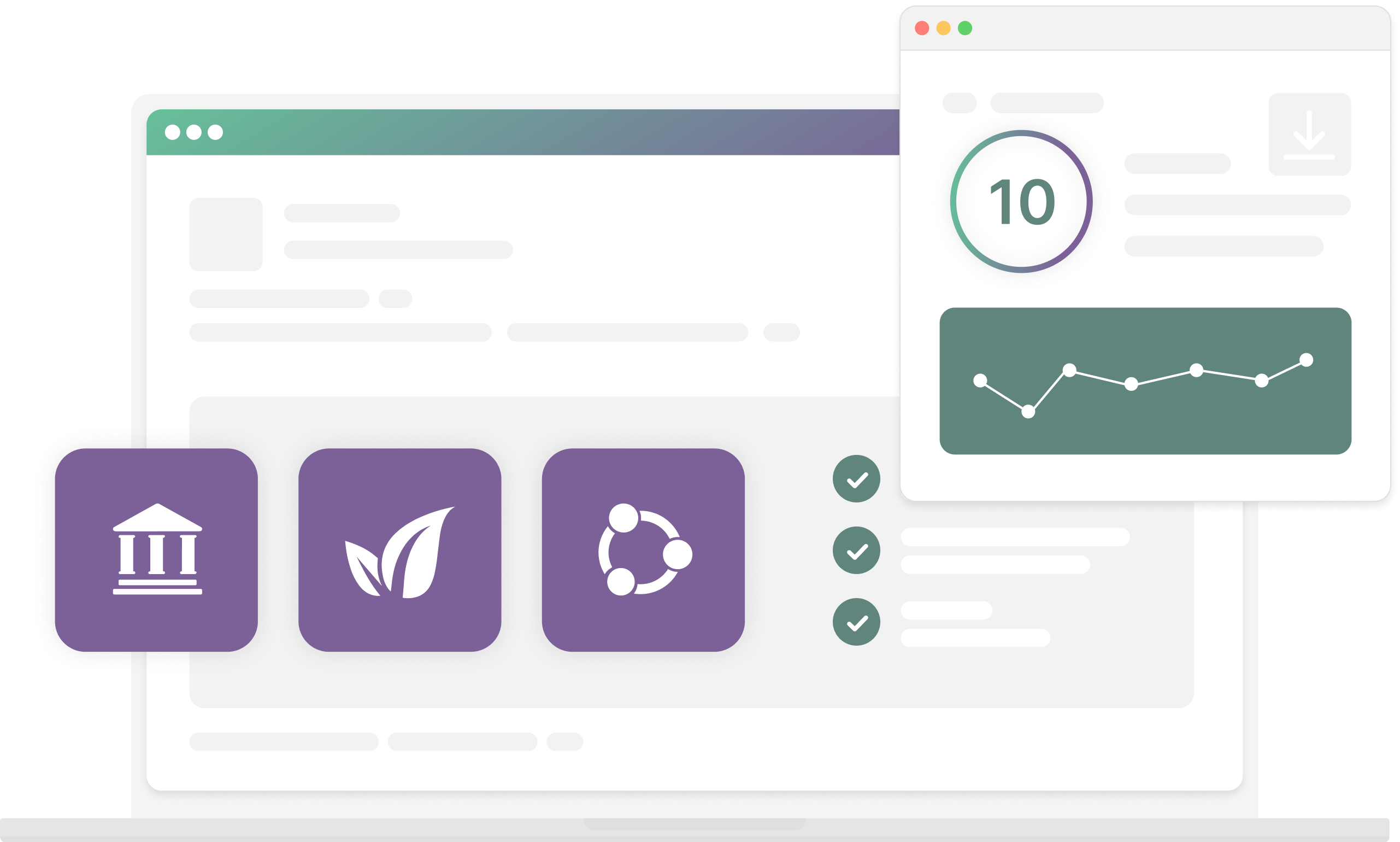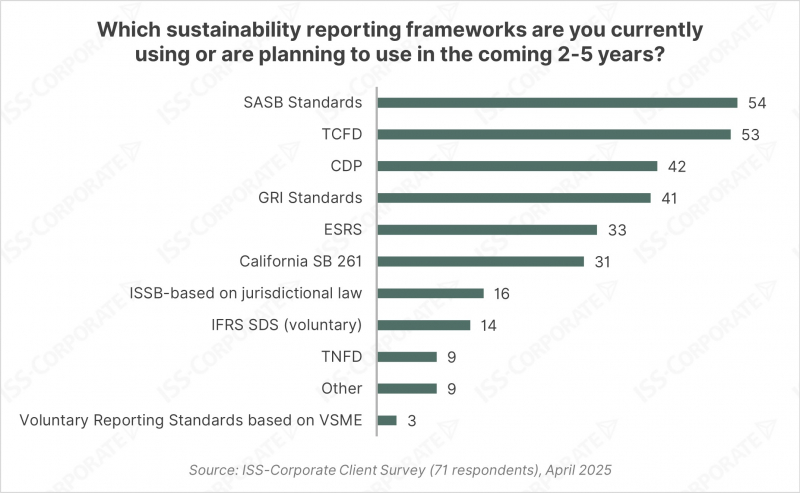Streamlining Sustainability Reporting: Survey Reveals Top Priorities for Corporates

Sustainability reporting has become widespread and increasingly complex, as corporate issuers manage stakeholder expectations, regulatory mandates, and alignment with multiple reporting frameworks. As they strive to meet these needs, sustainability reporting teams seek ways to standardize and streamline their approach, ensuring efficiency in data gathering, relevance, accuracy and traceability of sustainability information shared with stakeholders. Software solutions have emerged to address these needs, assisting organizations with data collection, data analysis, and alignment with reporting standards and frameworks.
Survey Overview: Growing Need for Streamlined Reporting
Building on the success of the Celsia reporting platform, ISS-Corporate is expanding its reporting solutions to simplify and improve the efficiency of sustainability reporting. As part of our product development efforts, we conducted a survey among our clients to gather valuable input on the use of reporting tools. The survey explored approaches to sustainability reporting, utilization of reporting frameworks, and desired features in a sustainability reporting software solution. We received responses from 71 corporate issuers, representing companies of all sizes (30% large cap, 41% mid cap, 29% small/micro cap) across all sectors. The geographic distribution was primarily U.S.-based (52 respondents), with a considerable number from Europe (17).
A Multi-Framework Reality
The survey results revealed key insights into the evolving reporting needs of corporate issuers. Regarding reporting standards, an overwhelming 90% of respondents indicated current use or planned adoption of more than one framework, with 79% expressing interest in three or more. Established frameworks, such as the SASB Standards, TCFD, CDP, and GRI, continue to dominate reporting practices. While SASB and TCFD have been incorporated into the International Sustainability Standards Board (ISSB), companies currently reference them as primary. This widespread use suggests likely broader voluntary adoption of the IFRS Sustainability Disclosure Standards issued by the ISSB. Emerging standards driven by regulatory requirements are also prevalent, including California’s Senate Bill 261, requiring climate-related financial risk reporting, aligned with the TCFD framework, and the EU European Sustainability Reporting Standards (ESRS), currently under review following the recent EU Omnibus amendment proposal.
Key Software Requirements
Respondents highlighted the value of a software solution that facilitates an audit trail and data validation, supports reporting alignment across multiple frameworks, and enables data collection integrated with existing organizational systems. Other relevant features included dashboard and visualization capabilities, customizable reporting templates, collaborative tools, and functionalities for benchmarking and gap analysis. These responses reflect the evolution of sustainability reporting needs and expectations, as well as the involvement from multiple internal stakeholders in the reporting process. The following paragraphs discuss the top three of these features in more detail.
Audit Trail and Data Validation: Data accuracy is paramount, as sustainability reports face increasing scrutiny from users, including investors and other stakeholders. Companies are also elevating reporting standards to align with practices in areas such as financial reporting. Internal audits are becoming more common, and a growing number of companies pursue external assurance, often as mandated by evolving global regulations.
Multi-Framework Support: As previously demonstrated, a growing number of companies leverage multiple reporting frameworks. Coordinating reporting efforts to align with diverse taxonomies – including questionnaires for business partners and sustainability rating methodologies – can be complex and logistically challenging. The ability to map key disclosures to various frameworks (including customized templates) seamlessly streamlines workflows, saves time and effort and ensures reporting priorities remain focused.
Data Collection and Integration with External Systems: Beyond data accuracy, a seamless and efficient data collection process is vital for sustainability reporting teams. Pulling information from multiple sources, such as spreadsheets, internal systems, and third-party applications can be chaotic, overwhelming, time-consuming, and prone to quality risks. Integrating multiple data sources and maintaining a standardized data repository are essential. One respondent emphasized the need for a single record for each data point, traceable across all potential reporting instances.
Respondents highlighted the value of a sustainability reporting software solution that facilitates an audit trail and data validation, supports reporting alignment across multiple frameworks, and enables data collection integrated with existing organizational systems.

These survey results underscore the challenges corporate issuers face in navigating the evolving sustainability reporting landscape. ISS-Corporate remains dedicated to understanding these requirements and developing solutions that empower organizations to meet their reporting obligations with confidence and efficiency.
Latin America’s Sustainability Reporting Gains Momentum
Rare Earth Minerals: The Hidden Backbone of the Energy Transition
California Climate Laws Update: CARB Workshop and SB 261 Pause
Energy Management Systems: Global Trends and Best Practices
2025 Sustainability Reporting: Global Trends in Framework Adoption
Getting Materiality Right: Challenges, Risks, and Best Practices
Spain Introduces Mandatory Climate Disclosure
Global Sustainability Pulse: Key Trends in Corporate Strategy and Disclosure
EU Sustainability Reporting: Parliament Backs New CSRD Thresholds
Mapping Corporate Climate Commitments: Aligning Business Action with Global Climate Goals


